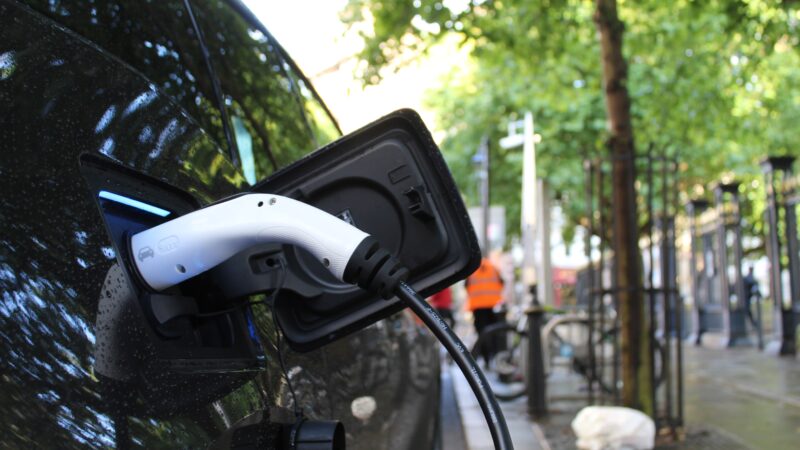Transportation is a major cause of air-pollution in California. Fine particulate matter, also known as PM2.5, is a small particle that can lead to significant short and long term health impacts when inhaled, such as eye, nose, and throat irritation, asthma, lung cancer, and heart disease. PM2.5 emissions released directly from tailpipes are considered a primary source, but the majority of PM2.5 concentrations come from secondary sources, created when nitrogen dioxide, another tailpipe pollutant, reacts with sunlight. PM2.5 is typically considered the worst air pollutant as it accounts for 90% of all air pollution deaths globally. Unfortunately, these negative impacts of older vehicle tailpipe emissions disproportionately affect communities of color and of lower-income.
California has set a target to reduce greenhouse gas emissions 40% below 1990 levels by 2030. In 2020, California set a new goal to have 100% of the state’s passenger vehicle and light-duty truck sales to be zero emission vehicles by 2035. However, the 10-15 years lifetime average of high-polluting passenger vehicles poses a challenge to meeting GHG reduction goals in a timely manner. We need to simultaneously replace older gasoline and diesel vehicles to provide immediate air quality relief. California already has rebate programs and incentives for people to purchase zero emission vehicles, but in order to have the greatest and most equitable impact, our project aims to identify priority areas of focus. This is determined based on the location of individual older internal combustion vehicles in relation to socioeconomic factors and analysis of the benefits associated with switching older traditional vehicles to alternative zero emission vehicles. The resulting analysis is important for policymakers to inform replacement programs in the areas that need it the most. With the aid of these programs, California would be able to meet its emissions targets while reducing traffic-related air pollution exposure for vulnerable communities. Accordingly, the results of this project have broad applications for public health and environmental justice.
Client: The Union of Concerned Scientists
Student Team: Anna Schneider, Aria Soeprono, Michelle Yep, Vivian Kha and Weihao Shao
Advisor: Pablo Saide Peralta
Related Publications

